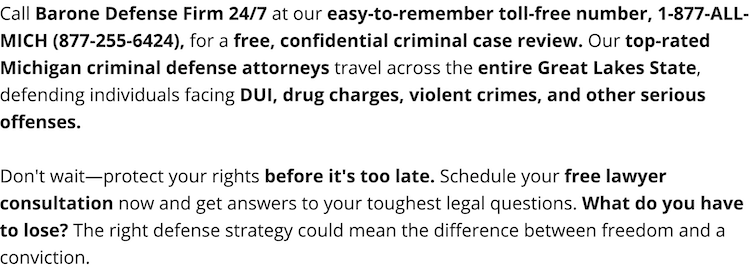Treatment of Medical Marijuana
The treatment of medical marijuana in Michigan can depend on certain factors. Some communities and some law enforcement officers in those communities have a hands-off attitude toward marijuana. This amounts to a de facto legalization. Other communities, sometimes right next door, aggressively approach marijuana and treat it as a dangerous drug. They sometimes even mistakenly arrest patients and caregivers. If you want to know more about how medical marijuana is treated, consult a qualified medical marijuana lawyer who can answer your questions. Read on to learn more about what goes into treatment of medical marijuana in Michigan, as well as the ways a skilled attorney could offer you their assistance today.
Where to Find the Michigan Medical Marijuana Act
Michigan has an excellent state website for laws, criminal and civil statutes, public acts, and bills. These can all be easily found through online search engines such as Google. There are many other resources like this website where individuals can learn and become educated about the Medical Marijuana Act. In addition, Patrick Barone wrote the book the Entrepreneurs Guide to the Medical Marijuana Act specifically to provide simple summaries of these laws. Otherwise, the three acts are set forth in Chapter 333 of the Michigan Complied Law.
What is the Policy Regarding Driving After Using Medical Marijuana?
It is not illegal to have medical marijuana with someone in the car if they are otherwise legal to lawfully possess and use medical marijuana. An individual may also have medical marijuana inside their body, meaning they can internally possess it. A driver can medicate, meaning smoke marijuana, and then lawfully operate a motor vehicle, much the same way that someone can drink alcohol and lawfully operate their car. A properly licensed medical marijuana patient is still not in violation of the Michigan Vehicle Code and cannot be charged with operating while intoxicated unless the state can prove intoxication or impairment. Of course, a high THC blood test can help the prosecutor meet their burden of proof, but it does not automatically allow a conviction as would a blood test showing a blood alcohol level above 0.08.
Operating a Vehicle While Intoxicated
However, the treatment of medical marijuana in Michigan can be similar to the treatment of alcohol in that it is unlawful to consume enough medical marijuana to become impaired or intoxicated, as those terms are defined by the Michigan Vehicle Code regarding the intoxicated driving statutes. If the medical marijuana substantially lessens a driver's ability to operate the motor vehicle, they are guilty of OWI just the same as if they were drunk. There is, however, currently no legal limit that applies to medical marijuana patients. The investigation in some cases would look identical to a drunk driving investigation. In other cases, if the department involved has a drug recognition professional on their team, they will conduct a separate 12-step drug recognition evaluation which is different. One of the 12-steps includes the administration of standardized field sobriety tests.
Zero-Tolerance Policy and Treatment of Medical Marijuana in Michigan
The zero-tolerance only applies to the non-medical use of marijuana. If the user is not registered as a medical marijuana patient or if the registered medical marijuana patient is using the marijuana in a non-medical way, they are precluded from having any amount of marijuana in the car or in their bodies. This means that for non-medical marijuana registered patients, it is unlawful to drive with any amount of THC in their blood.
Could Someone Use Medical Marijuana While on Probation or Bond?
The only way to know for sure when someone might be able to use medical marijuana while on probation or bond is to ask the judge who orders the bond or probation. An individual should not assume anything in this regard because if they are wrong, they could end up in jail. Some courts allow relatively free and unrestricted use of medical marijuana while on bond or probation, while others do not allow it at all. Other courts may allow the use of medical marijuana, but only after they impose certain restrictions such as frequency of use and amount.
The courts can do this even if the individual is a valid medical marijuana patient. The issue here is that marijuana is still an illegal controlled substance under state and federal law. While on bond and on probation, an individual is ordered to not violate any criminal laws. They must receive verification from the judge on this issue if they are found in violation of their bond or probation. There is a possibility that, in some circumstances, the defendant can lose their ability to have a medical marijuana card.
Responsibilities of Caregivers
A caregiver should be a compassionate individual with an honest desire for the health of their patient in the treatment of their debilitating diseases to receive relief from their symptoms that no other medicine can provide. As long as they are operating with the proper mindset, their only responsibility or obligation is to provide a medical marijuana patient with non-adulterated medicine in the prescribed amounts, meaning not more than 2.5 ounces per patient. If an individual wants to know more about getting in contact with a trustworthy caregiver or has any questions about the treatment of medical marijuana in Michigan, they should consult an experienced defense attorney who can answer their questions.
 Barone Defense Firm Home
Barone Defense Firm Home




















